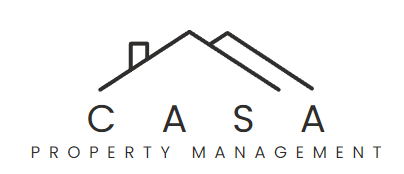Rental Property Expenses - Expenses You Can Deduct
If you have rental property that is not used privately at all you can deduct expenses from the rental income you include in your tax return. Not all rental expenses can be deducted.
The expenses you can deduct from your rental income are:
- the cost of insuring your rental property
- the rates for the property
- payments to agents who collect rent, maintain your rental, or find tenants for you
- fees paid to an accountant for managing accounts, preparing tax returns and advice
- repair and maintenance costs
- fees for arranging a mortgage to finance the rental property
- fees for drawing up a tenancy agreement
- the cost of getting a valuation required to get a mortgage, but not insurance valuations
- the costs of taking legal action to recover unpaid rent
- the costs for evicting a tenant
- depreciation on capital expenses
- travel expenses for travelling to inspect your property or to do repairs
- legal fees involved in buying a rental property, if the expense is $10,000 or less.
Methamphetamine - Managing The Risk
As a landlord, it is important to know your responsibilities around methamphetamine contamination - both for your tenants' safety and to ensure that you're adequately covered.
Meth contaminated properties have been generating headlines, and for landlords, their presence is a potential concern. While the scale of the problem is unknown, those who end up owning a meth contaminated property could face losses in several areas.
What is Methamphetamine?
Methamphetamine, commonly known as 'P' or crystal meth, is a toxic and addictive drug. Side effects of its use can include modd swings, paranois, aggression, anxiety and insomnia. Extended periods of exposure to the drug can lead to chronic health effects including cancers, brain damage, liver and kidney damage and birth defects.
What is the issue for landlords?
Rental properties can become contaminated when tenants recreationally use or manufacture meth on the premises.
The contamination levels vary depending on the situation - manufacturing or 'cooking' meth can result in homes needing to be stripped and cleaned. Our property managers take the risk of contamination seriously. We encourage landlords to be vigilant in having their properties tested if there is any suspicion that there could be any traces of meth from previous owners or tenants.
What do I do if I suspect my property is P contaminated?
If you have any suspicions that your rental property could have once contained a meth lab or user, don't take changes. Put yourself and your family in your tenant's shoes.
If you would like to arrange for your property to be tested, talk to your property manager about the right method for you.
Bear in mind, if a landlord rents out a property that is contaminated, they are breaching their obligations under the Residential Tenancies Act 1986, as well as other legislation such as the Building Act and the Health Act.
This can include:
- Exercising reasonable care in the selection of tenants by at least obtaining satisfactory written or verbal references
- Completing an internal and external inspection of the house at least every three months and upon every change of tenant
- Keeping a written record of the outcome of each inspection so you are able to provide a copy of the record if requested.
Worried about your property?
If you're concerned about contamination in your rental property or properties, speak to your property manager.
At Casa Property Management we routinely Methamphetamine test your property in-between tenants so we can pin point when the issue arose therefore we can precisely identify the tenant involved.
Insurance Cover
Be careful, many people think their insurer will cover the cost of decontaminating and restoring your property if you find out it's been used as a meth lab. But is this right? Unfortunately this is wrong.
There are a few things to look out for in your policy:
- Exclusions - some policies may outright exclude drug-related damages
- Caps on the amount of cover available - some policies limit cover for loss to $25,000 - which can disappear very quickly due to the high costs for decontamination.
- Meeting certain obligations as a landlord - some policies detail a list of actions that landlords must take to be covered for drug related contamination.

